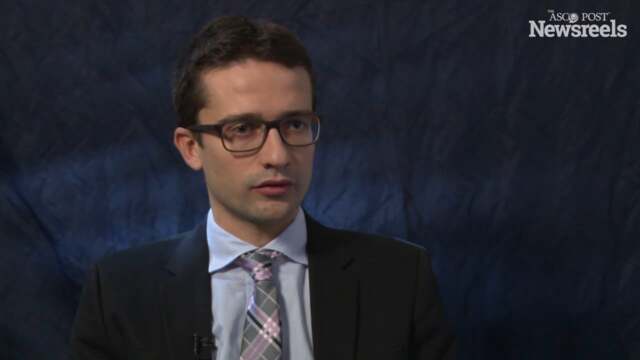A. Oliver Sartor, MD, on Results of the ALSYMPCA Trial for Castration-Resistant Prostate Cancer
2015 European Cancer Congress
A. Oliver Sartor, MD, of Tulane University School of Medicine, discusses the latest results of a clinical trial on radium-223 dichloride and the improvement in overall survival of men with advanced prostate cancer (Abstracts 2510, 2530).
Clifford A. Hudis, MD
Clifford A. Hudis, MD, of Memorial Sloan Kettering Cancer Center, discusses this prospective study of endocrine therapy alone in patients with ER-positive, HER2-negative, node-negative breast cancer (Abstract 5BA).
Matti S. Aapro, MD
Matti S. Aapro, MD, of IMO Clinique de Genolier, offered a case presentation and a cross-disciplinary approach to finding the best way to effect a cure with minimal impact on quality of life.
Jonathan E. Rosenberg, MD
Jonathan E. Rosenberg, MD, of Memorial Sloan Kettering Cancer Center, discusses this pivotal study of an investigational immunotherapy that has shown increased and durable responses, with a relatively benign toxicity profile (Abstract 21LBA).
Matteo Lambertini, MD
Matteo Lambertini, MD, Dana-Farber Cancer Institute, discusses the use of LHRH agonists during chemotherapy to suppress ovarian function as a way to preserve fertility in breast cancer patients (Abstract 1957).
Robert J. Motzer, MD
Robert J. Motzer, MD, of Memorial Sloan Kettering Cancer Center, discusses the results of this study, which could well change the treatment paradigm in patients with previously treated metastatic renal cell carcinoma (Abstract 3LBA).





